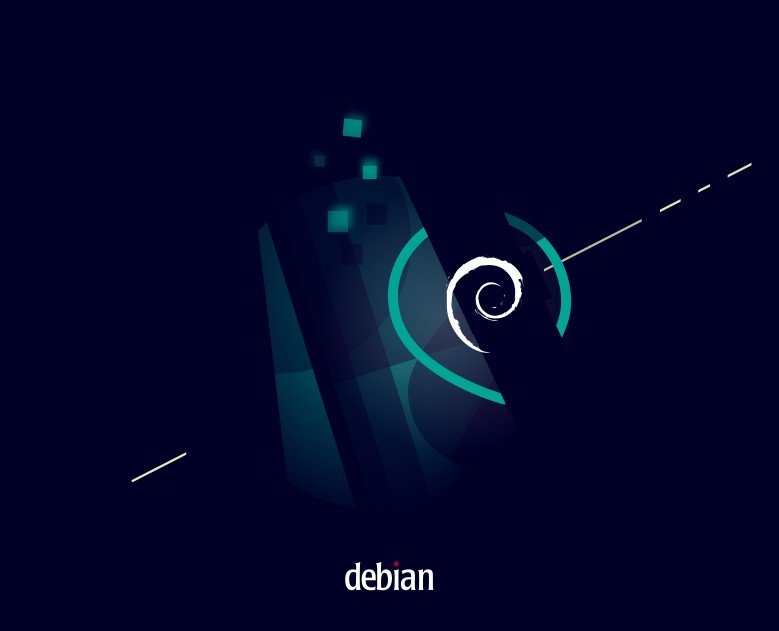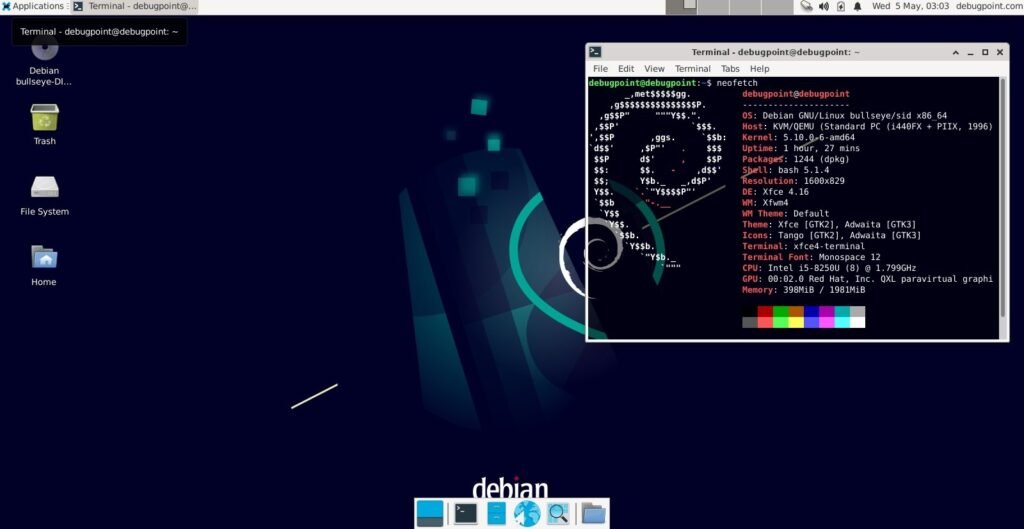We summarize the changes, updates, and new features of the Debian 11 Bullseye operating system.
Debian Linux is used by millions of users across desktops, servers, and it is the foundation of all the popular descendant operating systems such as Ubuntu and its derivatives. This Universal Linux Operating system Debian 11 Bullseye is the next stable version following the current stable Debian 10 Buster, which is currently going through the bug fix iterations.
In every Debian iterations, which typically spans around multiple years, we see thousands of packages are upgraded, included, and of course, removed. Following the hard freeze of Debian 11, we have now a fair idea about what are the new features and upgrades and what are the packages we say goodbye to in this release.
Before we summarize, if you are planning to install Debian 11 (sid), you can get the test copy right now and install it. I have included the download link at the end of this page.
Table of Contents
Debian 11 Release Schedule
Debian 11 release date is August 14, 2021.
Release candidates –
Debian 11 Features Summary
Architecture
Debian is probably the only Linux Distribution that supports a wide range of hardware architecture out there. Here’s the list of the supported architecture of Debian 11.
- 32-bit PC (i386) and 64-bit PC (amd64)
- 64-bit ARM (arm64)
- ARM EABI (armel)
- ARMv7 (EABI hard-float ABI, armhf)
- little-endian MIPS (mipsel)
- 64-bit little-endian MIPS (mips64el)
- 64-bit little-endian PowerPC (ppc64el)
- IBM System z (s390x)
And with the above list, Debian 11 is removing support for Old MIPS 32-bit CPUs.
Kernel
Debian Bullseye includes the current LTS kernel – Linux Kernel 5.10 which brings a fairly new set of hardware support, bug fixes, and performance improvements. Considering the Debian lifecycle, this is the ideal Kernel version you get with this release.
Misc Updates
- For driverless printing, Debian 11 introduces a new package ipp-usb which helps to treat your printer as a network device and extend driverless printing. The same is also applies to driverless scanning as well.
- Systemd in bullseye activates its persistent journal functionality by default, storing its files in /var/log/journal/.
- The /srv/tftp directory is now used as netboot base instead of /var/lib/tftpboot.
- For Firefox ESR and Chromium package, DuckDuckGo is the default search provider now.
- Chromium uses the internal website instead of Google as the default start page.
- New LTSP, re-written from scratch, dropping thin client support. Thin clients are now supported using X2Go.
Desktop Environment
If you are a desktop user, Debian features KDE Plasma, Xfce, GNOME, LXQt, MATE, LXDE, and Cinnamon desktop environments. They receive their respective stable versions as summarised here:
- KDE Plasma 5.20
- GNOME 3.38
- Xfce 4.16
- LXDE 10
- MATE 1.24
Major Application and Package Updates
Other necessary applications including browser, graphics, etc are upgraded to:
- Firefox-ESR 78.9
- Chromium 89.0
- LibreOffice 7.0
- Educational toolbox GCompris 1.0
- Music creator Rosegarden 20.12
- Calligra 3.2
- GNUcash 4.4
For developers and creators, the development tools are upgraded as follows:
- OpenJSD 11
- Python 3.9.1
- Samba 4.13
- GIMP 2.10.22
- MariaDB 10.5
- PHP 7.4
- Ngnix 1.18
- Perl 5.32
New Theme and Wallpapers
Debian always features cool wallpapers over the years and a default theme for each major release. Debian 11 features a community-selected “Homeworld” theme with a surreal-looking wallpaper with a modern touch. The theme applies to other sections of the operating system such as banners, installer headers, etc.

Download
Older Downloads
- Release Candidates
You can download the Debian 11 RC from the below link for your hardware suitable for you. Debian provides minimal, net install and large DVD .iso images as well. Grab them as per your need.
In case, if you are confused with so many types of installer and which one to choose, here is a guide for you on how to choose a proper installer and Debian installation guide.
Closing Notes
With over 50k+ package updates and many new features, Debian 11 is going to be another milestone release and foundation for many Linux distributions downstream. As it is used by millions of users worldwide, the Debian schedule is slow to make sure that it is stable and well tested. Let’s wait for the final release as a stable version while you download and test the release candidate.
